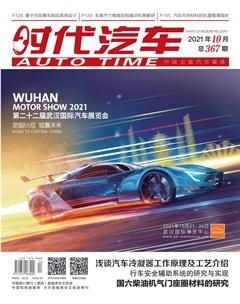学徒制背景下课程思政的探索与实践
崔慧娟 刘小英 韩影
摘 要:在系统性改革时期,我国通过“金融体制改革+产业结构调整”方案,扩大了要素市场配置资源的功能,优化了制造业、服务业、农业的产业结构,基本上实现了各行业诸领域的初步现代化转型。“十四五”规划建议中提出了数字化发展新目标,随着制造业向“智造业”的转型升级,在该目标下对于机电类专业人才的需求将出现大幅增涨。本文以此为出发点,选取学徒制背景下课程思政的探索与实践作为研究题目,简述了现代学徒制的内涵,剖析了学徒制背景下机电类专业课程思政的理念,与机电类专业课程思政的模式。并以此为基础,分别从建设师资队伍、构建课程体系、创新人才培养方式三个层面,对学徒制背景下课程思政的实践措施进行了讨论。
关键词:学徒制 课程思政 探索 实践
Exploration and Practice of Curriculum Ideology and Politics in the Context of Apprenticeship
Cui Huijuan,Liu Xiaoying,Han Ying
Abstract:During the period of systemic reform, China expanded the function of the factor market to allocate resources through the “financial system reform + industrial structure adjustment” program, optimized the industrial structure of manufacturing, service, and agriculture, and basically realized the initial modernization transformation of various industries. The "14th Five-Year Plan" proposal puts forward a new goal for digital development. With the transformation and upgrading of the manufacturing industry to an "intelligent manufacturing industry", the demand for electromechanical professionals will increase substantially under this goal. Taking this as a starting point, this article selects the exploration and practice of curriculum ideological and political under the background of apprenticeship as the research topic, briefly describes the connotation of modern apprenticeship, and analyzes the ideological and political concepts of electromechanical professional courses in the context of apprenticeship, and electromechanical majors. And on this basis, the practical measures of curriculum ideology and politics under the background of apprenticeship are discussed from three levels: building a faculty, building a curriculum system, and innovating talent training methods.
Key words:apprenticeship, curriculum ideology, exploration, practice
現阶段,我国政府已经通过对总体经济理论的应用,推动了全球社会主义市场经济的一体化发展。一方面,为我国企业的发展提供了前所未有的发展良机。另一方面,在全球同业竞争过程中,也使企业认识到了人才作为企业核心竞争力的重要性。按照现阶段对人才战略及人才本质的理解,确保人才的供需均衡十分关键。学徒制作为企业与学校之间的实现人才供需均衡的一项机制,已经产生了综合效益。尤其在我国进入新时代之后,通过大力扶持职业教育,借助政府宏观牵引、学校与企业深度合作的方式,推进了学徒制的进一步发展。下面先对现代学徒制的内涵展开具体说明。
1 现代学徒制的内涵
学徒制是一种现代人才培养机制,主要是在学校与企业合作的基础上,以企业员工作为师傅,以学校学生作为徒弟,在知识技能传授体系下,建立起来的一种工学交替、实践育人模式。虽然学徒制具有明显的比较优势,有利于职业教育中的知识型、技术型人才培育。但是,近年来的实践中逐渐发现,学徒制下的课程教学里越来越偏重于以岗位实际作业内容为准的任务式教学。简单讲,课程教学的内容选择中弱化了对学生的综合素质培育。因此,在现阶段的职业教育中,应该以新课程中提出的综合素质教育作为目标,重新调整对学徒制的认知,并在大力实施学徒制时,同步的推进课程思政,借助思政教育补足学徒制在实践中暴露的短板。
2 学徒制背景下课程思政的探索
2.1 课程思政理念探索
学徒制背景下机电类专业课程思政的理念探索相对较多,从现阶段的实践经验看,一方面,认识到了学徒制与职业教育中的综合素质目标培育之间的局部冲突。另一方面,我国是具有中国特色社会主义国家,具有思政教育的优良传统。通过思政教育已经为中华民族的发展哺育了几代具有“红色基因”的人才,为社会主义的建设工作产生了巨大的推动作用。进入新时代后,我国政府以高屋建瓴的宏观设计视角,通过对人性的深入研究,提出了构建人类命运共同体、实践中华民族伟大复兴梦的两大目标。并且,借助“金融体制改革与产业结构调整”等一系列国家治理方案,推动了向两大目标的实干、奋斗。当前对十八大报告、十九大报告,以及相关文件资料的学习、研讨,已经普遍认识到了新时代的思政教育与传统时期思政教育的差异。一些学者也明确的指出,新时代的思政教育具有宏观层面的理论创造、微观实践层面的政策牵引特征。

